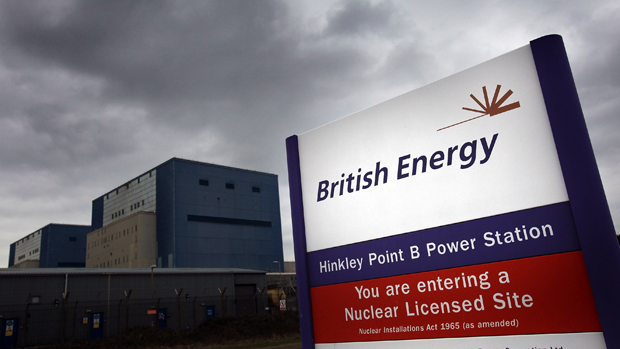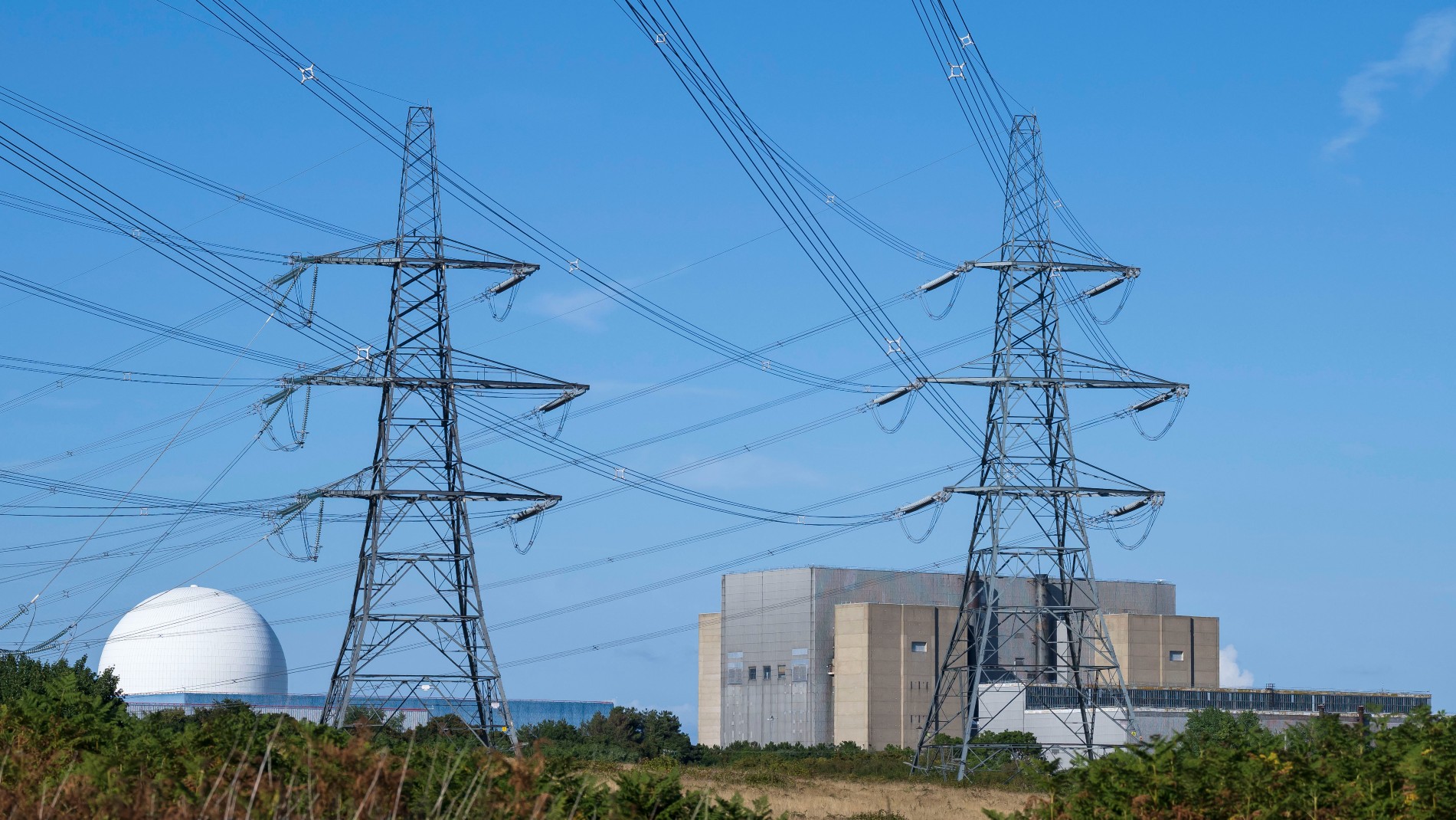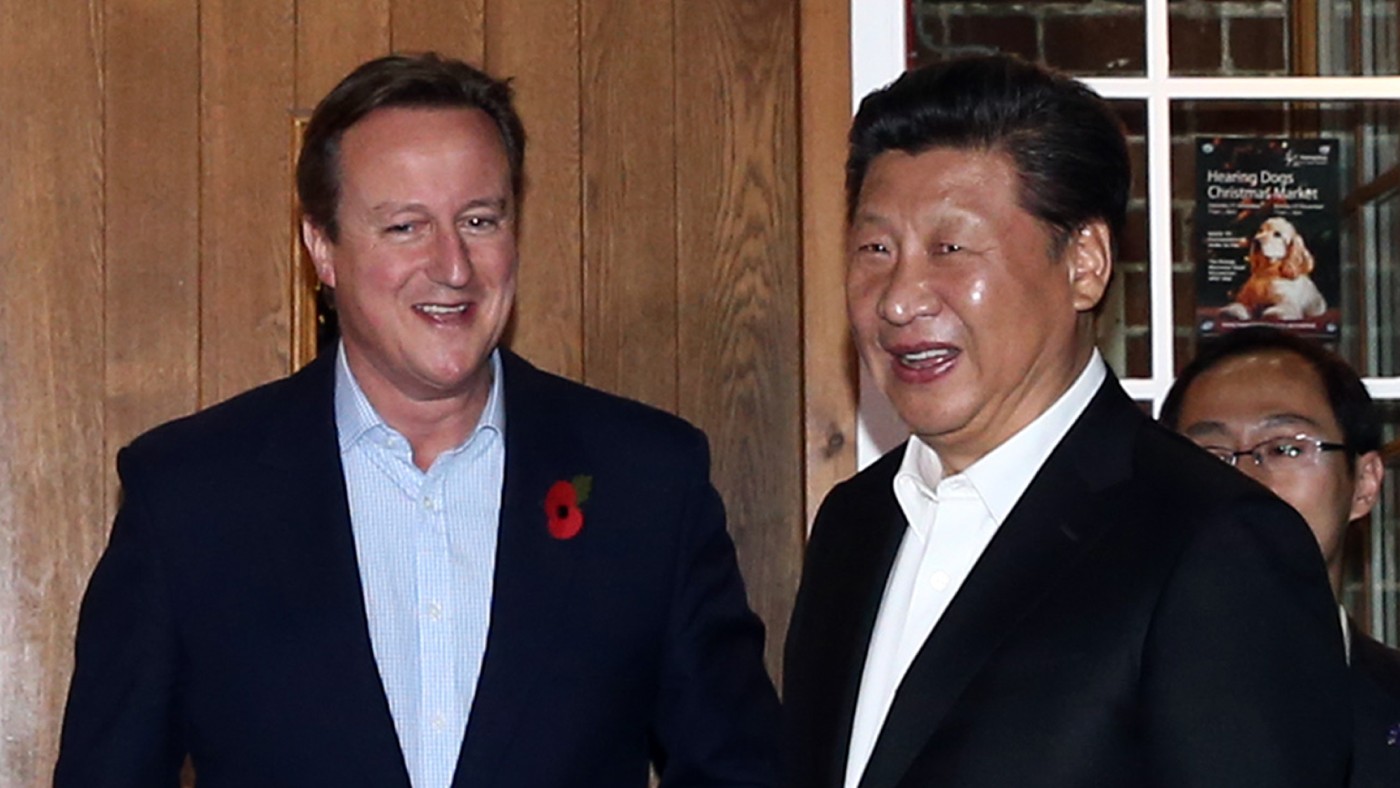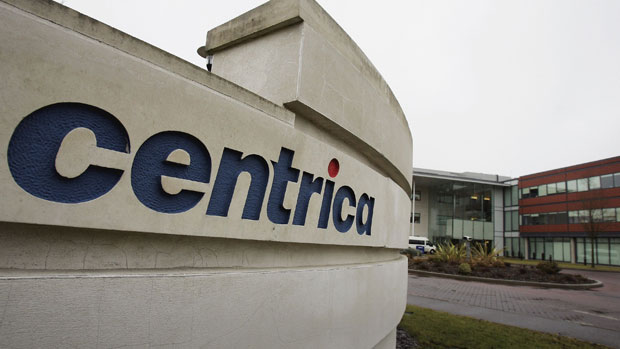Hinkley Point 'will cost public double the amount it should'
National Audit Office says nuclear project is 'risky and expensive' and has 'uncertain' economic benefits

A free daily email with the biggest news stories of the day – and the best features from TheWeek.com
You are now subscribed
Your newsletter sign-up was successful
Osborne says Hinkley Point price guarantees 'not set in stone'
9 September
George Osborne was yesterday forced to defend a £24.5bn project to build the first nuclear reactor in the UK in two decades, after a former head of the civil service branded it a "bottomless pit and a white elephant".
Lord Turnbull, who was Cabinet Secretary between 2002 and 2005 and now sits on the House of Lords Economic Affairs Committee, made the remarks during an evidence session with the Chancellor. He said the question that needed to be asked was "not 'can we do the deal' but 'should we do the deal'", The Independent reports.
The Week
Escape your echo chamber. Get the facts behind the news, plus analysis from multiple perspectives.

Sign up for The Week's Free Newsletters
From our morning news briefing to a weekly Good News Newsletter, get the best of The Week delivered directly to your inbox.
From our morning news briefing to a weekly Good News Newsletter, get the best of The Week delivered directly to your inbox.
In particular he criticised the £92 per kilowatt hour 'strike price' for electricity apparently guaranteed to French developer EDF, which is double current wholesale prices and would rise further with inflation over 35 years.
But Osborne said the price was "not set in stone" and would be "subject to final negotiation". He added that nuclear power would still be "substantially cheaper than other low-carbon technology, such as offshore wind and onshore wind".
The Daily Telegraph reports that Osborne also told the committee he would press for agreement when he visited China this month. Nuclear was part of the UK's energy "mix", he said, to "make sure the lights stay on".
Hinkley Point C in Somerset is set to become the country's first new nuclear reactor since 1995, but it has become mired in controversy over repeated delays amid safety concerns.
A free daily email with the biggest news stories of the day – and the best features from TheWeek.com
Last week it was revealed that a further delay will mean the plant does not produce power until at least 2023 – and that the plant will form part of a complex financing deal. The result will be Chinese financing for two other reactors, set to be finalised during a state visit in October, which will include the first Chinese-designed nuclear plant first to operate in the West.
Trouble Hinkley Point opens door to Chinese reactor in Essex
07 September
Plans to build the UK's first nuclear power plant since 1995, which are mired in delays and facing mounting criticism over costs, are likely to be confirmed in October in a major deal that will also herald the UK's first Chinese-designed and operated reactor.
The Sunday Times reports that an agreement, "part of a wide-ranging civil nuclear pact between Britain, France and China", is likely to be signed during a state visit by Chinese premier Le Keqiang next month. It will see China's state power companies, China General Nuclear and China National Nuclear Corporation, take a large minority stake at Hinkley Point, Somerset, and a follow-up project at Sizewell in Suffolk, both of which are being led by French state-backed producer EDF.
In return, the Chinese companies will acquire from EDF the rights to develop a reactor at Bradwell, Essex. The French company "would become a minority partner and assist the Chinese through Britain's approval process for a new reactor design, a process that is among the most arduous in the world".
The Bradwell plant is "expected to be capable of producing one gigawatt of electricity", which is enough to power 1m homes. Hinkley Point will consist of two larger EPR reactors, each with a capacity of 1.6GW, which will generate seven per cent of Britain's electricity needs.
Hinkley Point has, however, been the subject of criticism over the £24.5bn price tag – it is "on course to become the world's most expensive power station" – and taxpayer-underwritten guarantees on the unit price for generated electricity that starts at £92.50 per megawatt hour, around twice the current wholesale price, and then rises with inflation for 35 years.
Hinkley point owners confirm nuclear delay
7 September
A £24.5bn project to build the UK's first new nuclear energy facility in decades has hit another setback, after the boss of the company which will build the plant admitted it will not meet a deadline that has already been put back several times.
News emerged on Thursday of problems at a more advanced project at Flamanville, northern France, which is based on the same new reactor technology that will be used for the Somerset venture. Both projects are being run by French energy giant EDF.
Flamanville will now not generate power until 2018, and will cost more than three times the original €3bn (£2.2bn) estimate. The French nuclear safety regulator has raised a number of safety concerns about the project over the past year.
The Guardian said yesterday that the knock-on effects of the postponement could lead to a further delay in bringing Hinkley Point online. Now the BBC reports that Jean-Bernard Levy, chief executive of EDF, has confirmed that the new British plant will not begin producing power in 2023 as previously stated. It was originally meant to be completed by 2019.
Delays to the project are bad news for the Government, which is grappling with mounting energy security concerns as heavily polluting coal-fired stations close down. Many more "will be forced to close before 2023 under EU air quality rules", the Guardian says.
Hinkley Point has also been criticised for its massive cost – which is to be part financed by loans from China that are yet to be agreed – and long-term price guarantees for the electricity generated, which some analysts have argued are excessive. The OECD says that the UK's projected nuclear costs are the highest in the world.
Fresh doubts raised over Hinkley Point nuclear plant
10 August
Analysts and industry insiders have raised fresh doubts about a £24.5bn government plan to build the first of several new nuclear power plants in Somerset, with one boss branding the project an "expensive mistake".
The Sunday Times quotes Paul Massara, chief executive of energy supplier RWE Npower, who has mounted the "highest profile attack yet" on the Hinkley Point C project, which is being implemented by Npower's French rival EDF, with financial backing from the UK government and China.
Massara told the paper that "big central planning bets are likely to be the wrong answer" to energy needs in the 21st century, at a time when demand is falling and the cost of producing renewable energy is falling.
Analysts are also lining up to pick apart the value of the deal. Peter Atherton, energy analyst at investment bank Jefferies, told The Guardian that for the same price as Hinkley Point, which will provide 3,200 megawatts of capacity, almost 50,000 megawatts of gas-fired power capacity could be built – enough to "effectively replace the entire thermal generation fleet in the UK".
A report from energy analysts at HSBC says the future for the plant is "bleak" and that there is "ample reason for the UK government to delay or cancel the project". It cites demand that is falling at one to two per cent per year and a huge jump in import capacity from continental Europe.
That could drive wholesale prices down yet further from levels that are currently just a third of what EDF will be paid under an inflation-linked price guarantee.
HSBC also referred to major setbacks for the technology being used, including safety concerns raised earlier this summer. At the time the Treasury was said to be delaying final approval for the scheme, but it is thought to remain supportive and a deal is likely to be signed when China's president Xi Jinping visits Britain in October.
EDF has defended the project and said nuclear power is still the choice that gives "reliable baseload power at the same time as helping Britain meet its carbon emissions targets". It has said the price tag is "competitive" when the cost of "back-up" sources needed alongside renewables are included in calculations.
It also dismissed the idea of relying on increasing imports, citing a government target to improve energy security.
Hinkley Point nuclear plant gets EU go-ahead
8 October 2014
The European Commission has ruled that UK government plans to contribute towards the building of a new nuclear power plant do not contravene EU rules on state subsidies.
The commission had previously expressed doubts about the deal, and in response Britain cut back its financial support by more than £1 billion.
"After the Commission's intervention, the UK measures in favour of Hinkley Point nuclear power station have been significantly modified, limiting any distortions of competition in the single market," Commission vice-oresident Joaquín Almunia said. "These modifications will also achieve significant savings for UK taxpayers."
The revised proposal still faced considerable opposition. Needing the support of 15 of the 28 commissioners, Britain secured just 16 votes, the BBC reports
The French firm EDF will be in charge of building the plant which is due to open in 2023.
Under the terms of the agreement, EDF will be paid £92.50 per megawatt hour of energy generated at Hinkley C – almost twice the current wholesale cost of electricity. This agreement is intended to last the 60-year lifespan of the plant.
"However, the Commission said that if EDF's overall profits exceeded the rate estimated at the time it was awarded the contract, any gains would be shared with the public," according to the BBC.
The Hinckley C power station is expected to make use of Evolutionary Power Reactor technology which is not yet used anywhere in the world. Three nuclear plants currently planned in China, France and Finland will use the same technology when they come online.
-
 5 cinematic cartoons about Bezos betting big on 'Melania'
5 cinematic cartoons about Bezos betting big on 'Melania'Cartoons Artists take on a girlboss, a fetching newspaper, and more
-
 The fall of the generals: China’s military purge
The fall of the generals: China’s military purgeIn the Spotlight Xi Jinping’s extraordinary removal of senior general proves that no-one is safe from anti-corruption drive that has investigated millions
-
 Why the Gorton and Denton by-election is a ‘Frankenstein’s monster’
Why the Gorton and Denton by-election is a ‘Frankenstein’s monster’Talking Point Reform and the Greens have the Labour seat in their sights, but the constituency’s complex demographics make messaging tricky
-
 Great British Nuclear: one step forward to take two steps back?
Great British Nuclear: one step forward to take two steps back?Talking Point New flagship agency to deliver UK’s next generation of reactors delayed as nuclear output is set to decline further
-
 China General Nuclear: banned from Britain?
China General Nuclear: banned from Britain?feature The brief ‘golden era’ of Sino-British relations has turned ‘radioactive’
-
 Centrica to cut 4,000 jobs and sell UK nuclear holdings
Centrica to cut 4,000 jobs and sell UK nuclear holdingsSpeed Read Beleaguered British Gas owner lost 1.4 million customers last year